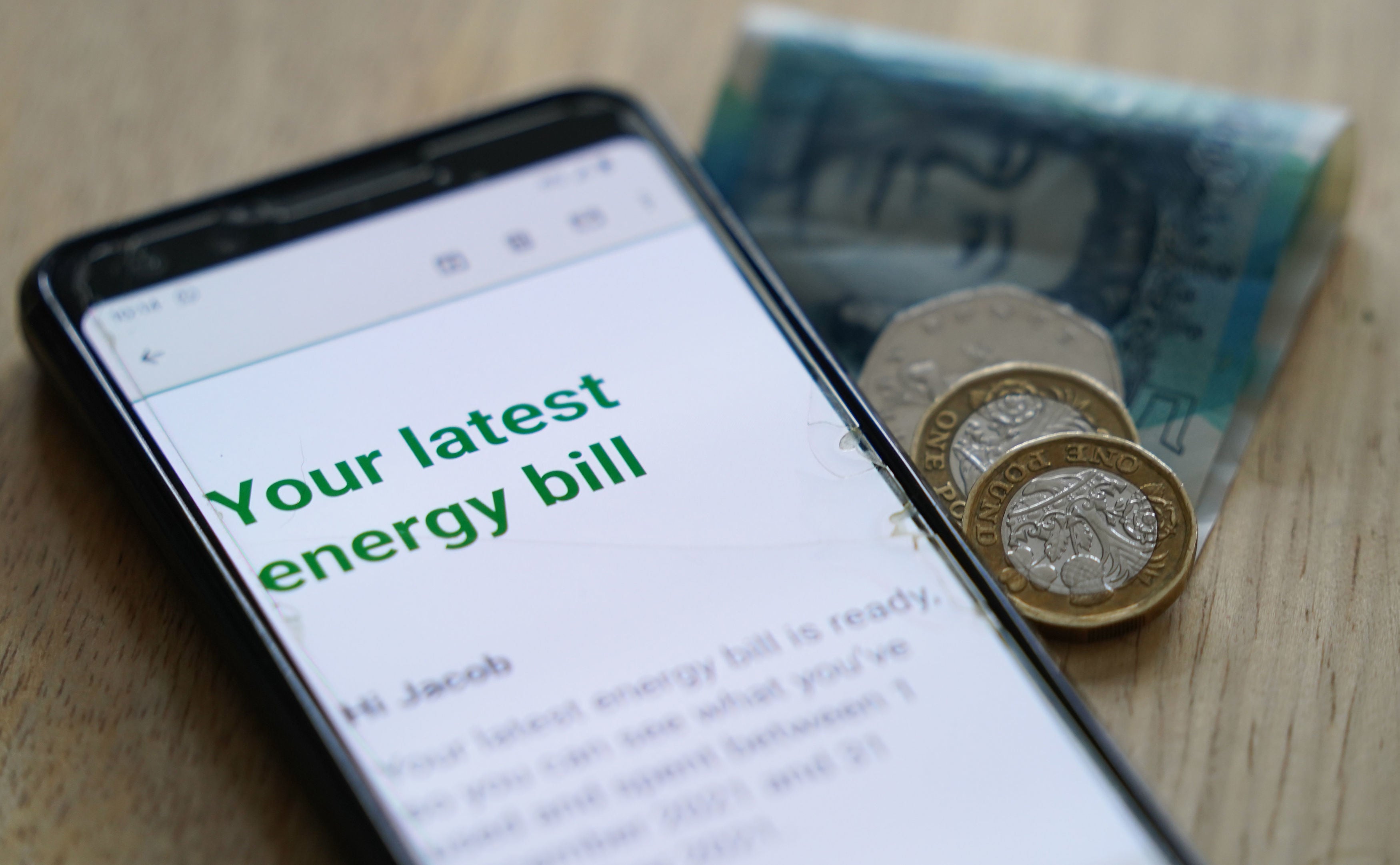I knew the cost-of-living crisis was coming – but I didn’t expect it to bite so quickly for me
I’m worried that my bills will become unmanageable and I’ll end up in debt, or in arrears, or just absolutely miserable because I can’t afford the little things that make life brighter


Your support helps us to tell the story
From reproductive rights to climate change to Big Tech, The Independent is on the ground when the story is developing. Whether it's investigating the financials of Elon Musk's pro-Trump PAC or producing our latest documentary, 'The A Word', which shines a light on the American women fighting for reproductive rights, we know how important it is to parse out the facts from the messaging.
At such a critical moment in US history, we need reporters on the ground. Your donation allows us to keep sending journalists to speak to both sides of the story.
The Independent is trusted by Americans across the entire political spectrum. And unlike many other quality news outlets, we choose not to lock Americans out of our reporting and analysis with paywalls. We believe quality journalism should be available to everyone, paid for by those who can afford it.
Your support makes all the difference.I’m a journalist, so it’s not like I was blissfully unaware of the cost-of-living crisis that’s currently gathering speed in Britain, like a boulder rolling down a very steep hill.
In this section, of which I am a commissioning editor, we’ve run insightful comment pieces on the cost-of-living crisis, covering areas of concern such as fuel poverty and the impact of inflation. I knew the biggest fall in living standards since the 1950s was coming, and I knew it would be hugely damaging for families across the UK – but I didn’t expect to feel the impact so quickly myself.
In the space of a month, my phone bill and my broadband bill have both gone up. I’m waiting anxiously for my April energy bill, which is supposed to rise by approximately 50 per cent, with another increase predicted for October. Shopping for food is more expensive. And – oh the joy – my national insurance contributions have gone up too.
I consider myself to be in the most stable financial position of my adult life and I’m keenly aware that there are millions of people in Britain who are being – and will be – hit far, far harder by the crisis. But even so, I’m worried.
I’m worried that my bills will become unmanageable and I’ll end up in debt, or in arrears, or just absolutely bloody miserable because I can’t afford the little things that make life brighter. Not to be able to afford treats like going for a coffee or to meet friends – the pick-me-ups that keep us going – never mind being unable to have bigger things, like holidays, is demoralising and embarrassing. It grinds you down.
Constant worry about money and how you’re going to pay for basic essentials is – unsurprisingly – pretty bad for your mental health. In fact, money and mental health impact each other both ways, like a tennis ball bouncing back and forth between two Wimbledon pros.
Poor mental health makes it harder to stay in work, earn money and manage money, and if you have money problems, such as financial hardship or debt, you’re significantly more likely to experience mental health issues. Children and adults living in the 20 per cent lowest income bracket in the UK are twice to three times more likely to develop mental health problems than those in the highest.
Without meaningful government intervention that protects the poorest and most vulnerable – those who can least afford to bear the hardships of rising prices – we can expect there to be some very serious and damaging consequences for the health, life chances and even life expectancy of people across the UK.
Unfortunately, the bad stuff – the stuff that any government worth its salt should be working tirelessly to avoid – is already happening.
On 10 April, more than 550 food banks in the Independent Food Aid Network warned Boris Johnson and the chancellor, Rishi Sunak, that they are close to “breaking point” due to a surge in demand.
To keep up to speed with all the latest opinions and comment, sign up to our free weekly Voices Dispatches newsletter by clicking here
There are currently more than 2,200 food banks in the UK – 1,300 are part of the Trussell Trust network and over 900 are independent. That’s more than the number of McDonald’s and Burger King outlets combined. There will undoubtedly need to be more to meet the needs of food-insecure families.
According to a survey of 3,200 UK parents with dependent children for Deliveroo and the Trussell Trust, the soaring cost of living could push more than a million parents into using a food bank in the next three months. Nearly one in 10 parents said they were “very likely” to need help with food. A third of families reported skipping meals due to rising costs, and one in five has resorted to eating cold food to keep energy bills down.
What have we got from Johnson, Sunak and the rest? A planned increase to universal credit that’s below the rate of inflation – a cut, in real terms, that will leave around nine million families worse off. A £200 “grant with a levy on future bill payers” (by definition, a loan, even though they say it isn’t) to help with energy bills.
I’m worried, as someone in full-time work who is just about managing OK. How are people with more debt, more caring responsibilities, more health concerns, and more precarious financial situations supposed to feel?
Join our commenting forum
Join thought-provoking conversations, follow other Independent readers and see their replies
Comments